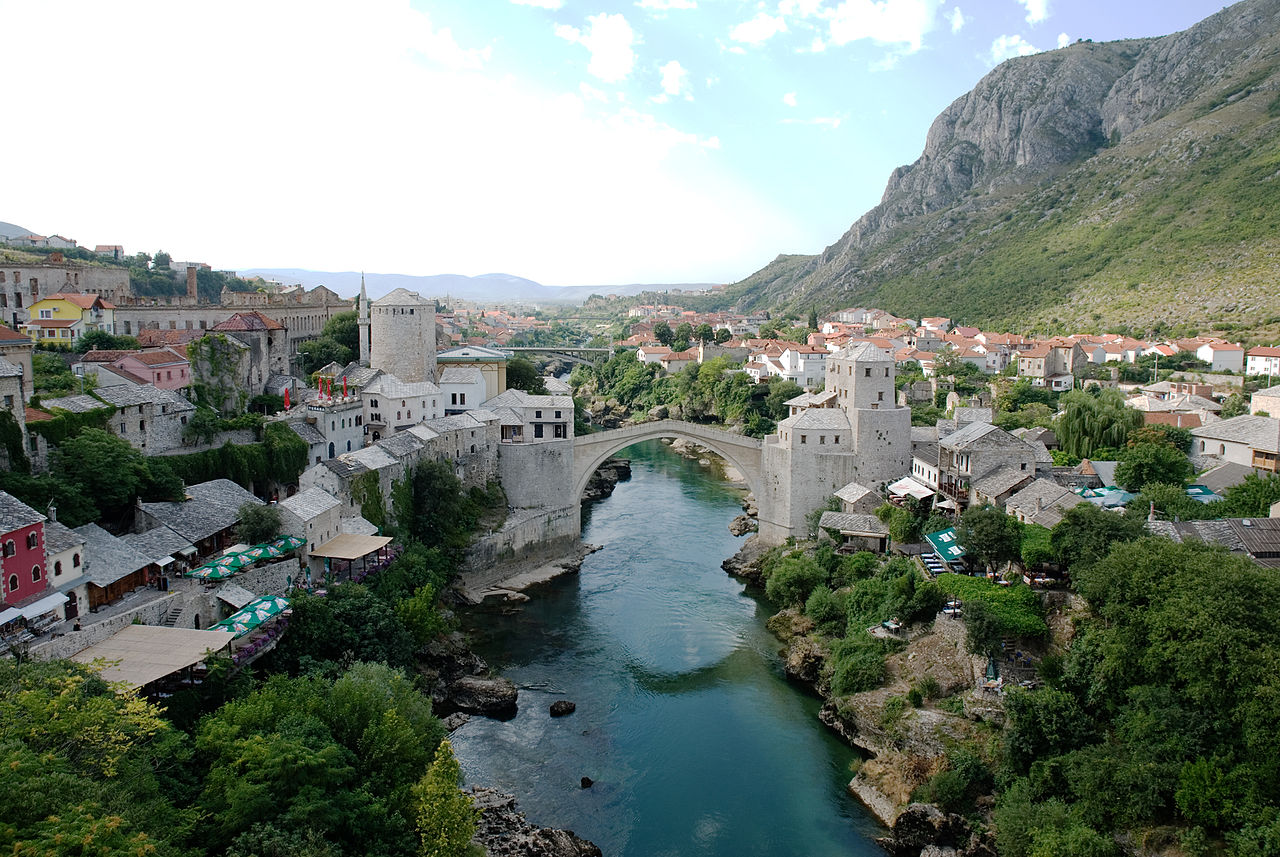Laura Kromjak, a Fleming International Visiting Fellow in the Center for International Studies, gave a lecture, “Undoing the Bosnian Genocide,” on Wed., April 15, in which she explored the interplay of trauma and identity within St. Louis’s Bosnian community.
Kromjak is a Hungarian Ph.D. student at the University of Graz in Austria. Her dissertation on the Anglophone narrative of Bosnian genocide trauma has brought her, with the support of the Fleming Fund for Visiting Fellows, to the site of the largest Bosnian diaspora community in the world.
Too young to have any firsthand memories of the Bosnian war and genocide, Kromjak gleaned her early knowledge of it from television and the Internet. As a Hungarian, she said that she found herself at the crossroads of the war’s driving forces: a 50-year communist regime and the notion of Balkanism. The latter, while a geographic designation, harbors a negative cultural connotation, as it refers to an “underdeveloped,” uneducated mentality, explained Kromjak. The term reveals longstanding opposition between East and West, the result of extensive cultural exchange under the Austro-Hungarian Empire.
“I feel very connected to these people,” she said, referencing encounters with the Croatian and Serbian populations of southern Hungary.
Her connection has a personal dimension. Kromjak’s father died in a car accident when she was 14. From this experience, she said, “I can understand what it means to construct yourself in the aftermath of tragedy.”
Bosnia’s genocidal war, which lasted from 1992 to 1995, displaced roughly one million people and killed nearly 100 thousand. Following a State Department decision on a refugee resettlement program, Bosnians sought refuge here in St. Louis, particularly in the Bevo Mill neighborhood. The area offered affordable housing and entry-level jobs; the refugees, in turn revitalized the city’s socioeconomic landscape, said Kromjak.
While Bosnians have since settled into the area and established their own distinctive niche, issues of intergenerational trauma linger. In what she called a “Yugo-nostalgia,” St. Louis’s Bosnian youth have inherited their parents’ war memories. A trauma arises in which youth are separated from their Bosnian heritage, and their identities develop fluidly and irregularly. Citing Ben Moore, Fontbonne English professor, Kromjak said, “Many experience a sense of cultural homelessness.”
Kromjak presented a video of testimonies by friends from Slovenia, Croatia, Serbia, Montenegro, Kosovo and Bosnia. Speaking from kitchens, sidewalks and desks, they offered messages of hope and reflection interspersed with phrases in their native languages.
“If you ever have the time and the money, you should come visit us,” urged one woman. “You should come and see how beautiful the country where you come from is.”
Another woman asserted: “Maybe I am a war child, but I don’t want war to define me as a war person.”
“Luckily, the war has not scarred me, but it has scarred my parents, my relatives and our whole community,” said one young man.
“We face the consequences of poor economic conditions that the war created,” said one business school graduate from Kosovo.
In an audio recording, the son and daughter of Bosnian parents described their return to Sarajevo. The girl recognized a playground where she had played as a child and recalled their mother making a dandelion crown; her brother retained a vivid memory of the snow. Living in St. Louis, they experienced a generational and cultural dissonance, typical of their demographic. “They just want to make sure we remember where we’re from. That’s the only thing,” said the girl.
Fontbonne University’s Bosnian Memory Project figured heavily in Kromjak’s lecture. “I’m trying to draw your attention to a moral imperative,” she said. This would involve, she explained, deconstructing and documenting the trauma of those who fled Bosnia for Bevo. The Project tries to involve more young Bosnians from Affton High School to participate in the recording of oral histories, which are a source of empowerment, according to Kromjak.
Lastly, Kromjak focused on the aspect of “undoing” referenced in its title. “Genocide meets its opposite in life, in dialogue and community,” she said.






